From NucleraReviewed by Olivia Frost
This article is based on a poster originally authored by Sunidhi Shetty, Narasimha Murthy Bandaru, Anna Moberg and Marco Manni, which was presented at ELRIG Drug Discovery 2024 in affiliation with Nuclera Ltd.
This poster is being hosted on this website in its raw form, without modifications. It has not undergone peer review but has been reviewed to meet AZoNetwork's editorial quality standards. The information contained is for informational purposes only and should not be considered validated by independent peer assessment.

Conventional methods for optimizing and obtaining proteins can take weeks or even months, particularly when the expressed proteins lack solubility, proper folding, or activity. This often requires multiple rounds of the protein optimization workflow with new constructs, resulting in frustration, increased costs, and significant time delays.
This study outlines two cutting-edge life science tools that enable rapid protein obtainability on the eProtein DiscoveryTM system and functional activity via protein-protein interaction studies on the BiacoreTM SPR system. This workflow is demonstrated using the difficult-to-express protein VEGF165, which is known to contain disulfide bonds.
Objective
To obtain soluble VEGF165 protein and confirm functional activity via protein-protein interaction studies.
Methods
Expression and purification screen and scale-up using the eProtein DiscoveryTM system
The eProtein Discovery system is an integrated platform that enables rapid protein access in three simple steps (Figure 1).
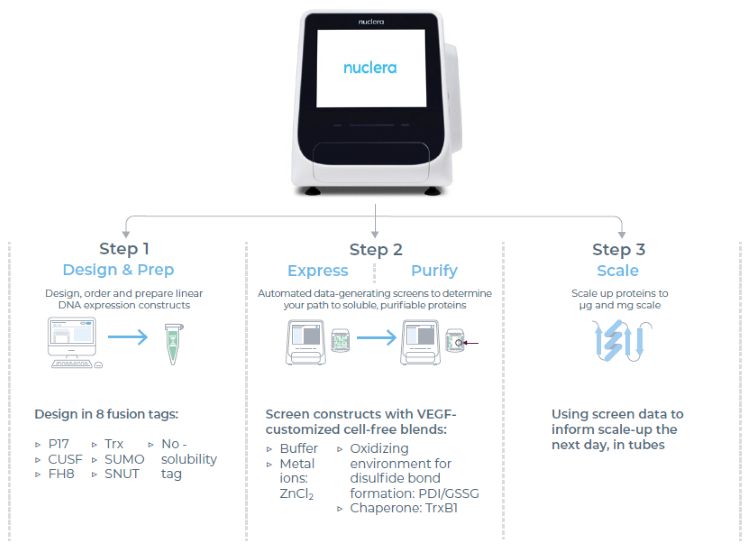
Figure 1. The eProtein DiscoveryTM workflow. Image Credit: Sunidhi Shetty et al., in partnership with Nuclera Ltd.

Figure 2. Fluorescence complementation technology used within the eProtein Discovery Cartridge to detect soluble protein expression. Image Credit: Sunidhi Shetty et al., in partnership with Nuclera Ltd.
Biacore assay
Biacore SPR systems allow you to monitor the interaction between biomolecules in real time using surface plasmon resonance (SPR).
Biacore SPR systems are powerful tools in research, drug discovery, quality control, and manufacturing to provide data on, for example, kinetics, affinity, concentration, and specificity. In this study, the Biacore 1S+ SPR system (Figure 3) was used to study the interaction between VEGF165 and Bevacizumab via Protein-Protein interaction.
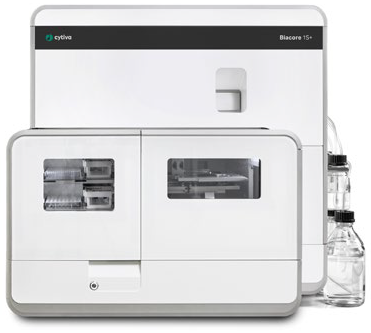
Figure 3. Biacore 1S+ SPR system equipped with six flow cells that can be used individually or in combination to enhance analytical flexibility. Image Credit: Sunidhi Shetty et al., in partnership with Nuclera Ltd.
Biacore Single-Cycle Kinetics (SCK)TM was used to study the binding kinetics of VEGF165 over Bevacizumab. Serial concentrations of 0.78, 1.56, 3.125, 6.25, 12.5, and 25 nM VEGF165 were injected over Bevacizumab captured on Sensor Chip Protein A.
Details of the Biacore SCK method for bevacizumab: A capture level of 75 RU, association time of 120 seconds, dissociation time of 3600 seconds, flow rate of 30 µL/minute, temperature set at 25 °C, and a running buffer of PBS-P+. The run data was then analyzed using a 1:1 binding model to determine the binding constants.
Results
The expression and purification screen on the instrument identifies construct and cell-free blend combinations that generate the highest purified yield
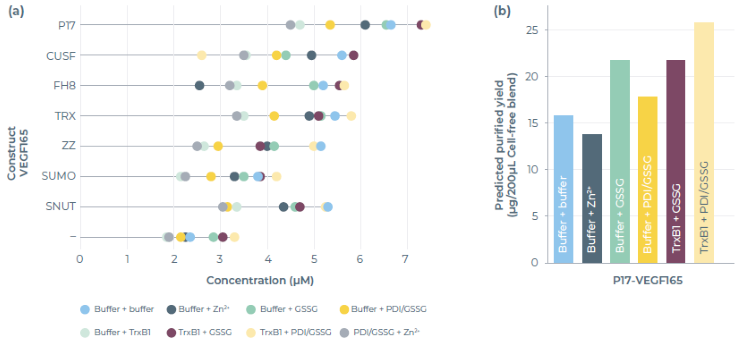
Figure 4. Expression and purification results. (a) Lollipop diagram shows expression yield of VEGF165 variants expressed in different cell-free blends. (b) Cartridge predicted scale-up yield to aid in scale-up planning. Image Credit: Sunidhi Shetty et al., in partnership with Nuclera Ltd.
The highest VEGF165 expression was achieved with the construct P17 tag in the presence of chaperone (TrxB1) and oxidizing condition (PDI/GSSG mix) (Figure 4).
This combination enhanced solubility by utilizing the P17 solubility fusion tag along with additives that facilitate disulfide bond formation. These results align with published research indicating that VEGF expresses effectively with a solubility fusion tag in an E. coli strain optimized for disulfide bond formation.1
Scale-up expression produces VEGF165 of high quantity and purity
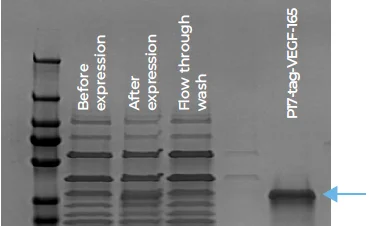
Figure 5. Scale-up expression and purification of P17-VEGF165 yielded 106 μg soluble protein from 1 mL cell-free blend at high purity. Image Credit: Sunidhi Shetty et al., in partnership with Nuclera Ltd.
Biacore assay confirms functional activity of VEGF165 to Bevacizumab

Figure 6. Sensorgrams (blue curve) along with 1:1 fitted curve (black curve) for Biacore Single-Cycle Kinetics (SCK)TM of VEGF165 over Bevacizumab captured on Sensor Chip Protein A. Table represents the kinetic parameters for these interactions. Biacore assay confirms the functional activity of VEGF165 with an affinity constant (KD) of 36 pm. Image Credit: Sunidhi Shetty et al., in partnership with Nuclera Ltd.
Conclusions
- Less than a 48-hour turnaround time from DNA to 106 μg of pure protein
- Biacore assay confirms the functional activity of VEGF165 over Bevacizumab with an affinity of 36 pM.
The rapid cell-free protein expression and purification screen on the eProtein Discovery System, followed by scale-up protein production the next day, significantly shortened the time to obtain protein for functional validation on the BiacoreTM system.
References:
- Nguyen, M., et al., 2016. Prokaryotic soluble overexpression and purification of human VEGF165 by fusion to a maltose binding protein tag. PLOS ONE, 11(5), p.e0156296. Available at: https://doi.org/10.1371/journal.pone.0170602
About Nuclera
Nuclera is the pioneer in bringing rapid protein prototyping to the benchtop. We make proteins accessible through eProtein Discovery™.
Through our technology, we accelerate breakthrough improvements in human health and empower life science researchers with easy access to target proteins.
Founded in 2013 by PhD students at the University of Cambridge, the company now has a presence in Cambridge, UK and Boston, MA employing over 100 employees.
About ELRIG (UK) Ltd.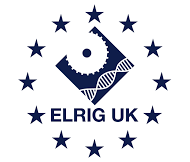
The European Laboratory Research & Innovation Group (ELRIG) is a leading European not-for-profit organization that exists to provide outstanding scientific content to the life science community. The foundation of the organization is based on the use and application of automation, robotics and instrumentation in life science laboratories, but over time, we have evolved to respond to the needs of biopharma by developing scientific programmes that focus on cutting-edge research areas that have the potential to revolutionize drug discovery.
Comprised of a global community of over 12,000 life science professionals, participating in our events, whether it be at one of our scientific conferences or one of our networking meetings, will enable any of our community to exchange information, within disciplines and across academic and biopharmaceutical organizations, on an open access basis, as all our events are free-of-charge to attend!
Our values
Our values are to always ensure the highest quality of content and that content will be made readily accessible to all, and that we will always be an inclusive organization, serving a diverse scientific network. In addition, ELRIG will always be a volunteer led organization, run by and for the life sciences community, on a not-for-profit basis.
Our purpose
ELRIG is a company whose purpose is to bring the life science and drug discovery communities together to learn, share, connect, innovate and collaborate, on an open access basis. We achieve this through the provision of world class conferences, networking events, webinars and digital content.
Sponsored Content Policy: News-Medical.net publishes articles and related content that may be derived from sources where we have existing commercial relationships, provided such content adds value to the core editorial ethos of News-Medical.Net which is to educate and inform site visitors interested in medical research, science, medical devices and treatments.
Last Updated: Nov 18, 2024